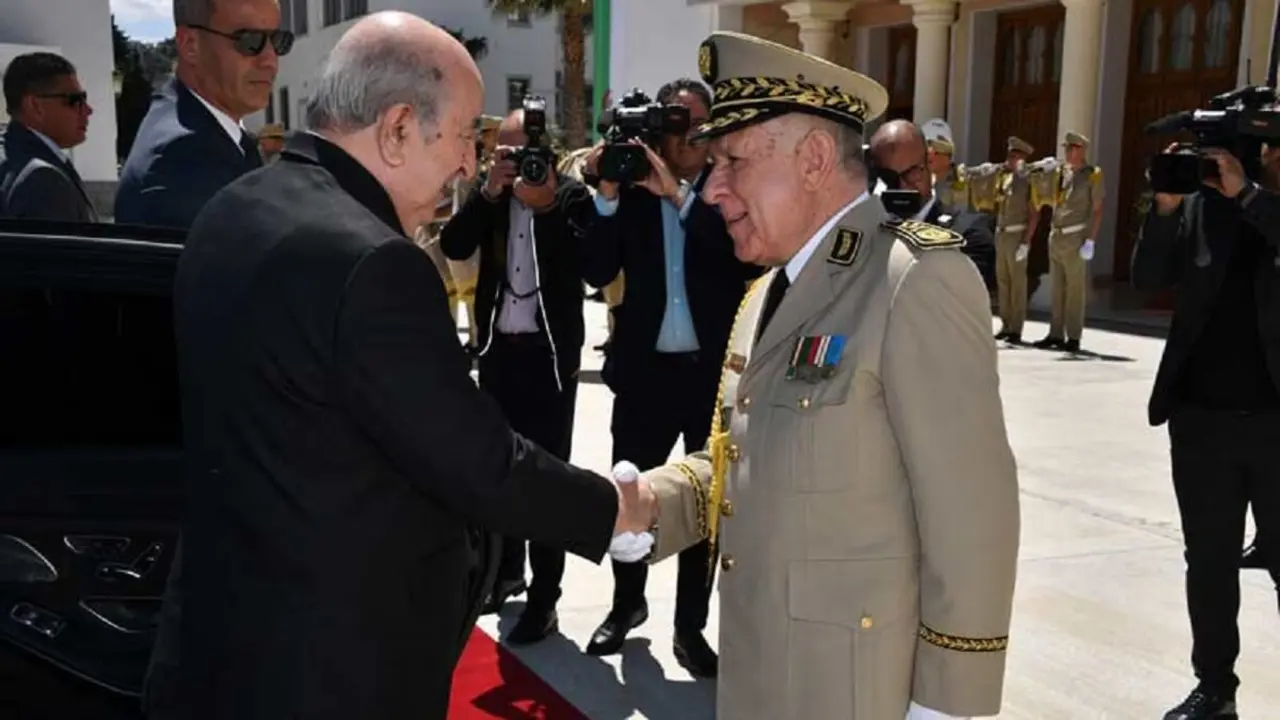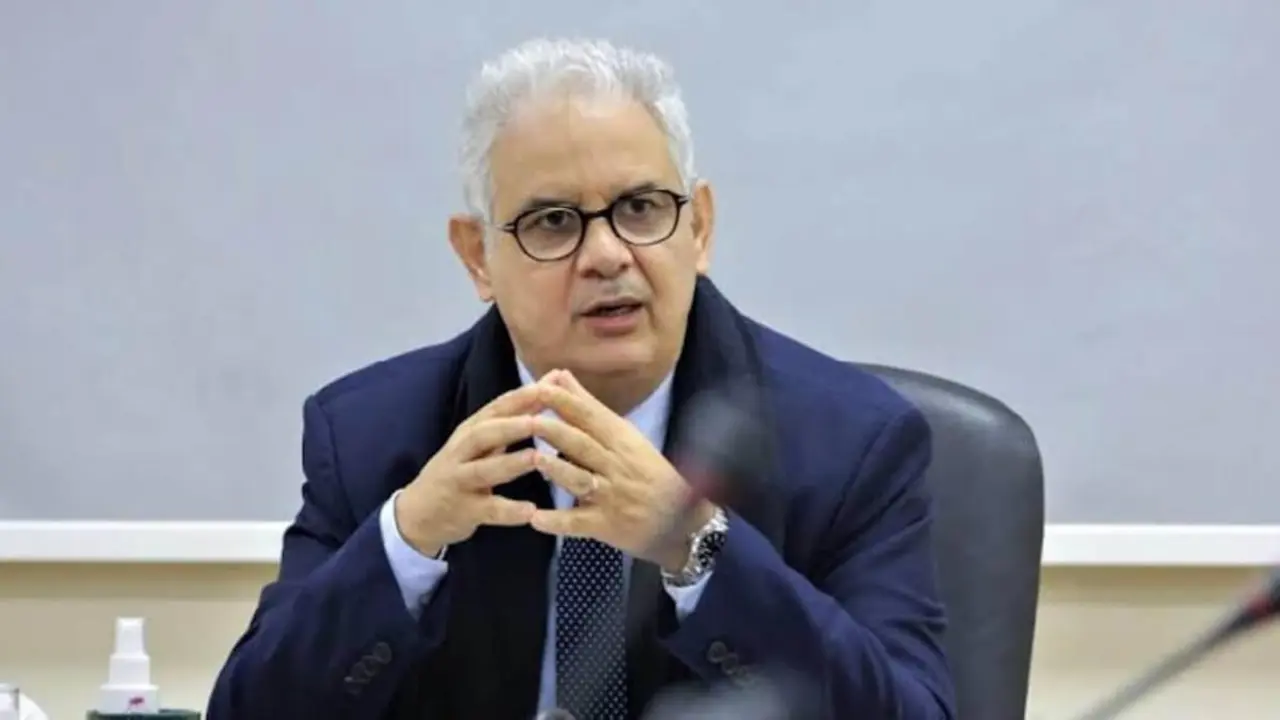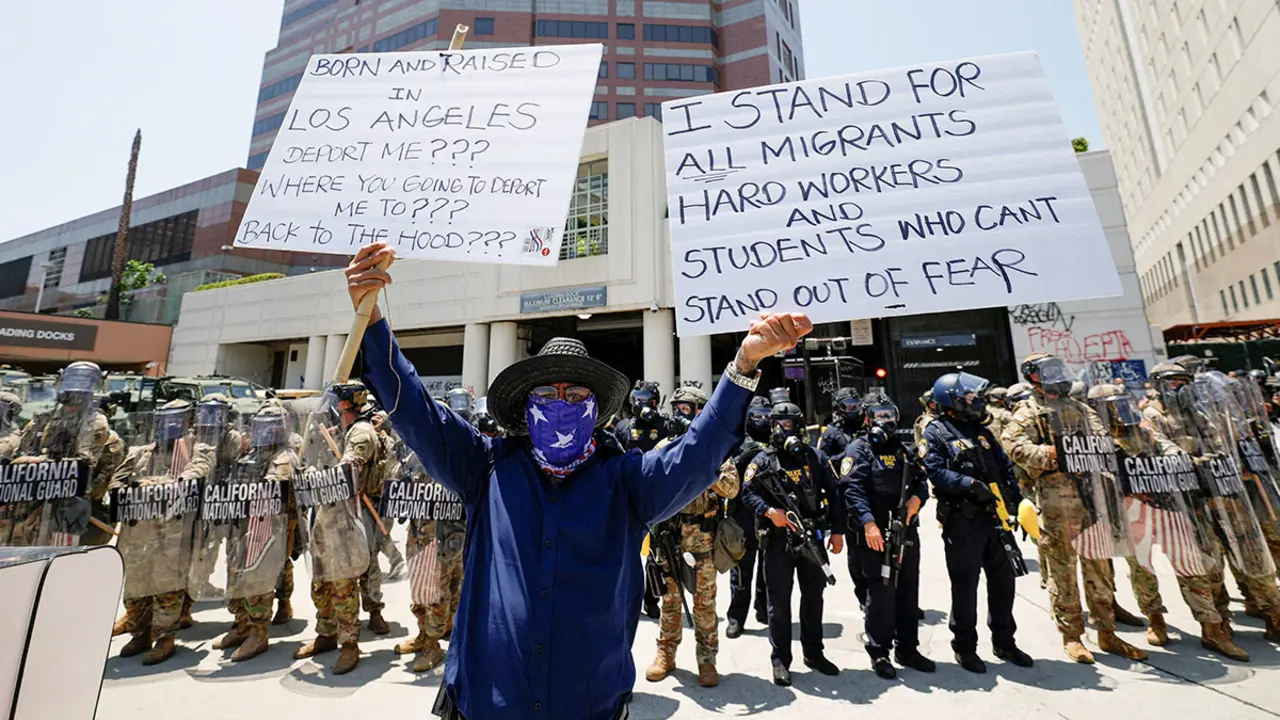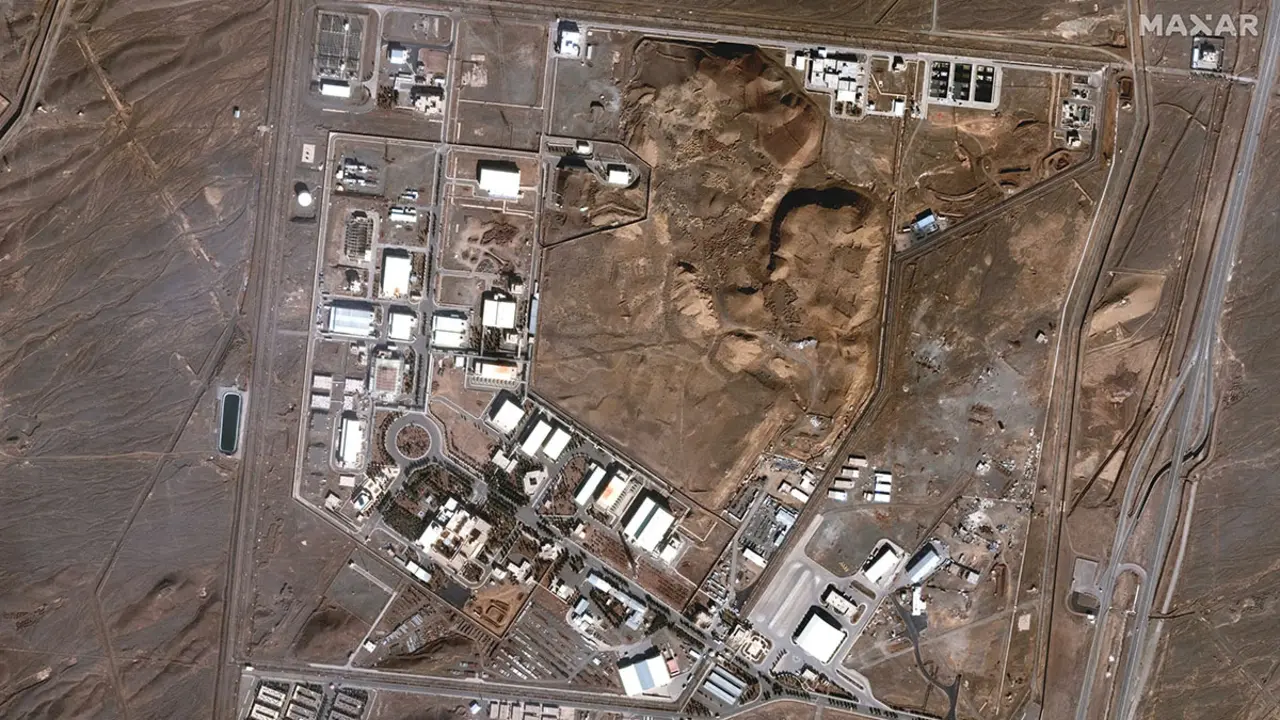Roberto Izurieta: "American institutions are strong enough to deal with the intention of anyone not to recognise the result"
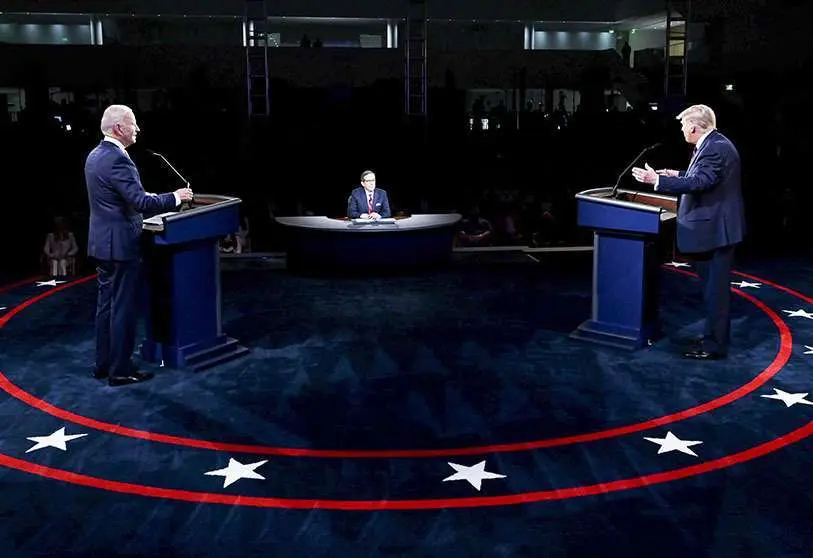
With less than two weeks to go before the US presidential elections and the second electoral debate between the two candidates, Republican Donald Trump and Democrat Joe Biden, Roberto Izurieta, a professor at George Washington University, CNN contributor and political consultant, analyses US electoral news on the Atalayar programme on Capital Radio.
How do you see the election battle today, when the second debate had to be suspended because of Donald Trump's illness? What do you think of the conduct of this campaign?
All campaigns are interesting. All campaigns are important, but this one is undoubtedly the most important in modern American history. What we have seen in the last few months is just a foretaste of what we are going through.
Indeed, the central issues are: the economy and the pandemic, which are linked. The President himself (Donald Trump) has been infected by the virus. With the pandemic, you don't judge how countries that are so badly affected react in case someone gets infected, because these things happen. What we have the right to judge is whether a country or a citizen has been absolutely reckless, has refused basic measures to protect themselves and us, and that is the great debate we are in.
Because if the pandemic had not hit the economy so hard, the situation would be much better and we would certainly have fewer victims in this first and second wave. All this is the context of the campaign, with all these variables.
From Europe, from Spain to be precise, one wonders whether or not the polls that name Joe Biden as the winner will be filled out. Because four years ago, the polls gave Hillary Clinton the win, and at the moment of truth, it turns out that the popular vote was not enough for Hillary to beat Trump, who won in key states. Are these polls reliable?
I'm not a pollster, but to defend the polls, the polls showed Hillary Clinton won by about two points. The problem is that the polls at the state level, which is where the delegates are elected, were not accurate enough, and the same polls, usually at the state level, are a little less accurate, and they gave an equal result.
In this case, we are looking at something else. The difference is greater, and if technically Trump can lose by ten points and win the Electoral College, mathematically, that could be the case, but it's not very likely. In other words, the difference was like four years ago, three, two points; the chances that the polling station would eventually change that result were more likely than today with a difference of more than five, six, or seven points. We are voting in the middle of a pandemic, and many postal votes are already taking place. And every state has to deal with the postal vote and promote it; we fear the possibility that the recount will take several days and Donald Trump has already said that he would not accept any result that is not favourable.
Can you imagine the possibility that if Trump doesn't win the elections, there could be a social explosion in the world's most powerful country, caused in part by him?
I believe that in the United States, the institutions are strong enough that we are not swept away by the intention of a leader who decides not to recognize the election results. That said, some of the president's ambiguous messages are cause for concern. That we do everything necessary to maintain order and calm as these hours pass, as happened with the elections under Bush, where the recount lasted almost a month and the country calmly stood by while awaiting the result as it should have been. There is another set of threats in this election. In a country where the use of weapons is allowed, there is cause for concern. But in the end, law and order will prevail.
To what extent can the economic situation, the millions of unemployed, considering that Trump won the 2016 elections mainly by promising to guarantee wages in the northern industrial states, the mismanagement of the pandemic and racial justice, be detrimental to Trump's election?
The outcome of an election is the result of multiple variables. People have many reasons to vote: the economy, the pandemic, racial issues, health security, the character of the president. There are a number of variables, and every voter assimilates that and ultimately makes that decision. There is not a single voter who says he or she is 100% sure. The big debate is between the economy and the pandemic. On almost every variable, Donald Trump loses his voting intentions. The economy is the only one that is doing well, largely because the relationship between not acting wisely and not acting in time to mitigate the economic impact of the pandemic is not yet apparent. This is a somewhat more complex argument that has been much harder for voters to explain.
In the "steel belt" states, Biden won with Obama eight years ago, but Trump managed to get his head in Ohio and that seems to have spread. If Ohio falls to Joe Biden's side, it is possible that it will happen in other states of similar size: like Wisconsin, Michigan, Pennsylvania ...
I'm afraid it will take a few days to get results, but that night we will have a lot of information, especially in those states on the west coast. Anything from Florida, Pennsylvania, Ohio, depending on the evolution of these results, as long as the absentee vote is counted correctly. Here's the problem: the states that have experience with postal voting have already processed the votes (they didn't count them, they processed them, they confirmed that they were legitimate) at the close of the elections, in one, two or three hours you have the result. But there are other States that, at the closing of the polls, start to process the vote and that's where the problem lies, but all the calculations can be done.
In Florida, Arizona, Pennsylvania... Biden is in the lead, but still with very tight margins. Candidates are campaigning where the result appears to be the tightest...
Indeed. Let's see what's happening in Ohio, Wisconsin, Michigan... Pennsylvania, I think, is going to be on the side of Biden and especially what is happening in Florida.
Are there fewer undecideds than in 2016? The undecided, who were not in the polls, gave Trump the victory at the time
Yes, there are fewer undecideds. The uncertainty of these elections is not given by the level of indecision. Citizens have clearly defined who the candidates are. Moreover, this is a referendum on Trump. Here, those who vote for Trump know exactly who they are voting for and what kind of dispensation they will get. The problem lies in all these elements related to the pandemic, early voting, postal voting. For example, I voted a week, a month and a half ago. And with all the debate about the Supreme Court. When Obama nominated his Supreme Court nominee, there were ten and a half months left before the election was over, and the Republicans said, "No, you can't vote in an electoral process. And now, in the middle of the electoral process, they are putting their foot in the door to get a candidate, so the Democrats feel they have stolen one and imposed the other. And it's also a lifetime appointment.
Something similar is happening in Spain with the reform that the government wants to impose on the judiciary, with which the Spanish government is acting in Trump mode ...
Democracy works, and there is economic prosperity in a liberal system as long as there is independence from the powers of the state. If this independence is broken by upsetting the balance that exists, we enter another type of economy. In an economy that I call "underdeveloped".
Is it possible to think that there was no outside interference? Did Russia not interfere in the campaign, or are we simply not hearing about it?
Personally, I think this threat is latent. These intentions are real and I am sure that a number of external interfering agents are committing acts. I think that, thanks to Müller's research, we have perfected the systems that enable us to protect ourselves against this threat. But this is going to be a fight, you see, but so is the fight against crime. The forces of law and order, the police, must always have a better level of investigation and prevention than criminals, so it is a constant struggle. But this time they are not going to decide on the elections, they may make more noise than nuts. It will be noise, but not at a level where this interference could alter the result.
What does not seem to have any influence is foreign policy. For example, the very important signing of the Abraham Accords. This does not seem important in the eyes of the American electorate, given its importance for the region and for stability?
I think this is for the following reason: American-Israeli citizens, seeing Trump's role with certain neo-Nazi groups, who treated them with a certain ambiguity and not with the firmness that one should have with these racist groups, are moving between two positions. There are the agreements and then his behaviour with these racists. These groups are dangerous and cause concern around minorities. The attempted kidnapping of an American governor by fanatics, neo-Nazis... all this is worrying.
Which of the candidates could be the most interesting for Latin America?
There are many governments in Latin America that are very supportive of Trump. I think that with Biden we will have a more orthodox foreign policy, based on the professionalism of the State Department. Then it will be in that direction. In the case of Venezuela, I was concerned, especially in the primaries, about old comments by Sanders, who went so far as to say too benign things about Fidel Castro and Maduro. On the contrary, now Biden and Sanders himself have made it very clear: in the case of Venezuela, Maduro is a dictator, and we must work, within the forces of law and order, to support the Venezuelan people in solidarity in order to bring about change, for the return of democracy and economic recovery in a disastrous situation, which affects a large part of politics in Latin America.

